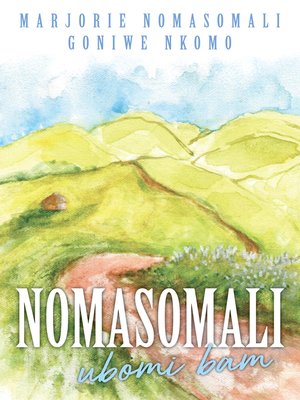
Sign up to save your library
With an OverDrive account, you can save your favorite libraries for at-a-glance information about availability. Find out more about OverDrive accounts.
Find this title in Libby, the library reading app by OverDrive.



Search for a digital library with this title
Title found at these libraries:
| Library Name | Distance |
|---|---|
| Loading... |
Born in 1941 in Bizana in the former Transkei, Nomasomali Marjorie Goniwe Nkomo seems to have lived many lives – Before apartheid, During apartheid and After apartheid. In just 138 pages, the author presents her history with the touch of a master storyteller and the universal voice of grandmothers everywhere. From the first line, we are engaged with her back in time at the homestead and the fields and the hearth, where meals are made and stories are brewed, along with the tea. Divided into three Parts – Before, During, After – the story moves from the innocence of the homestead and tales of growing up among a community of nurturing adults to Nomasomali's rise to adulthood, marriage, family and the ravages of apartheid. Part 3, ‘After', is a bittersweet reflection on what has become of our country since South Africa's first democratic election in 1994. One is left in catharsis, wishing for a return to the innocence of a bygone era but knowing it is gone forever. A sad fact that makes stories like this one such treasures. To expand on the above: Part 1 details the author's childhood in a rural area near a small village in pre-apartheid South Africa. It is a richly described period detailing traditional life characterised by ubuntu, indigenous practices and taboos and family and community relationships. Part 2 is about the author's adulthood. She is married with children and dealing with the constant challenges of apartheid. Her father-in-law and husband were both doctors and their practices were repeatedly bombed. Their home was repeatedly raided. Her husband and daughter were imprisoned. Through it all, she studied, continuously upgrading her qualifications and working steadily to help others and improve her community. Part 3 is a short but powerful section that starts with Vangile Gantsho's angry voice of feminine disappointment in her poem, 'I Expect More From You'. She uses potholes to symbolise the fruits of the struggle and laments that in ‘the New South Africa' children still have to learn under trees and use pit latrines.







